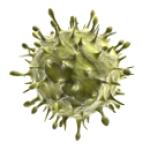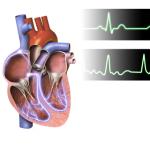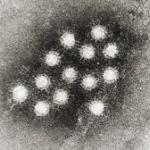Severe obesity (BMI = or > 40, or 35 if there are coincident health conditions) carries with it a variety of increased health risks, such as for type 2 diabetes, high blood pressure, and heart problems.
Disease
Rotavirus infection is a very contagious, resulting in gastroenteritis, fever, vomiting, and diarrhea — sometimes severe enough to cause life-threatening dehydration.
Atrial fibrillation is the most common irregular heartbeat, affecting 2.7 million Americans. Up to 15% of patients with atrial fibrillation can experience a debilitating stroke, so prevention is important.
The flu reminds us that humans, as social creatures, are more susceptible to contagious disease than more solitary species. But do other social species treat contagion differently and could there be evolutionary insights to discover?
This year's flu season is going to be bad. So far, at least 30 children have died from the flu.
As if we didn't have enough problems, for example, a particularly nasty strain of influenza going around, another infection which is normally
New cases of CWD, chronic wasting disease, have been detected in deer in Missouri and
Of late, the important topic of traumatic brain injuries has centered around football players and other concussion-prone athletes.
Back in 2012, we noted the good news that the prevalence of obesity and severe obesity in children served by federal food assistance programs had diminished.
Critical self-perception plays a significant role in why women choose not to engage in breast self-examinations, an essential tool in breast cancer prevention.











